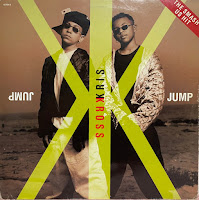"And it's about running away, so lots of people in the midsts of emotional quagmires will warm to its "theme" of "escape". So! Fling off your hobnails! Yup, you know it makes sense."
— Sian Pattenden
HOROSCOPES
How tomorrow looks for the pop stars of today! (But don't check back in, say, a year from now just in find out what we might have got wrong. Just because we predict the future doesn't mean we know exactly what's going to happen!)
WHAT'S IN STORE FOR
LADY MISS KIER
STARSIGN: LEO
AGE: 28 (born August 15, 1963)
LOVE: It's tempting to burn everything down, runaway and start all over for a passionate Leo but there's always a place for a stable mate to be the voice of reason. Consider hanging on to that geeky blond boy who's happy to drive you around — he may surprise you yet!
FAMILY: Some of Miss Kier's extended family have been wondering when she's going to have another hit song. The pressure is getting to her so some time away from them might be just the thing she needs.
CAREER: The Lady's elastic voice has been put to good use over the years but she's in danger of using it in a much more conventional manner as Deee-Lite's success continues to wane. Try to keep in mind what made you popular in the first place.
BEWARE OF... having to choose between staying the same or changing far too radically: either approach can be problematic.
~~~~~
WHAT'S IN STORE FOR
TOWA TEI
CHINESE ZODIAC: DRAGON
KOREAN AGE: 29 (born September 7, 1964)
LOVE: Dragons are often perfectionists which can lead to unrealistic expectations in the world of love. Ideally, he should try to find a Rooster so he can tell him or her what to do all the time or a Rat in the hope that their influence will get him to lighten up from time to time.
FAMILY: Aunts never stop asking about when Towa is going to get married — but that's what aunts are for! The promise of a new relationship come September ought to keep them at bay (for now).
CAREER: Hard work and success can come with a price. Dragons are prone to tuning out the advice of others. Towa should embrace other styles of music, collaboration with a variety of talented individuals and consider a change of scenery. It could do him a world of good.
BEWARE OF... breathing fire over those who stand in your way.
~~~~~
WHAT'S IN STORE FOR
SUPA DJ DMITRY
STARSIGN: ???
AGE: ?? (born ??? ??, 19??)
LOVE: Since his date-of-birth is unknown, it's impossible to know how his love life will turn out. But if you must know, he is best suited to someone born at some other random time of the year.
FAMILY: Dmitry has a family. He has to since he was born and all that. He may or may not be close to some of all of them but that depends on if the Moon is in whichever house it should be in depending on the sign from the Zodiac he has been allotted.
CAREER: Dmitry is the DJ for a trio called Deee-Lite. They once had a hit with "Groove Is in the Heart" but now they're in danger of fading away into oblivion. (NB: This is not from any kind of astrological chart: I looked it up in his bio)
BEWARE OF... not revealing any private information. How can a tenth-rate gossip columnist guess about the future of someone they don't know if basic info about when they were born and their starsign isn't provided? What do you expect, me to actually get to know the people I yammer on about???
~~~~~
Also Reviewed This Fortnight
Tori Amos: "Crucify"
WHAT'S IN STORE FOR
TORI AMOS
STARSIGN: LEO
AGE: 28 (born August 22, 1963)
LOVE: People tend to be in awe of the strong-willed Leo so it isn't difficult to find prospective partners out there. Whether they are able to communicate and forge a proper relationship going forward is a whole other matter.
FAMILY: Having a strong familial bond is important even for a free spirit who feels they are holding her back. Breaking free can be necessary at times but it is always important to find your way back.
CAREER: For those who stubbornly follow their own path, there will always be critics who needn't be listened to. But Tori shouldn't let the praise of her followers get to her either. She should try surrounding herself with level headed types with a more measured response to her recordings and performances. It can't hurt finding out your latest album is just okay, can it?
BEWARE OF... becoming a victim even as she sings about them.





.jpg)



